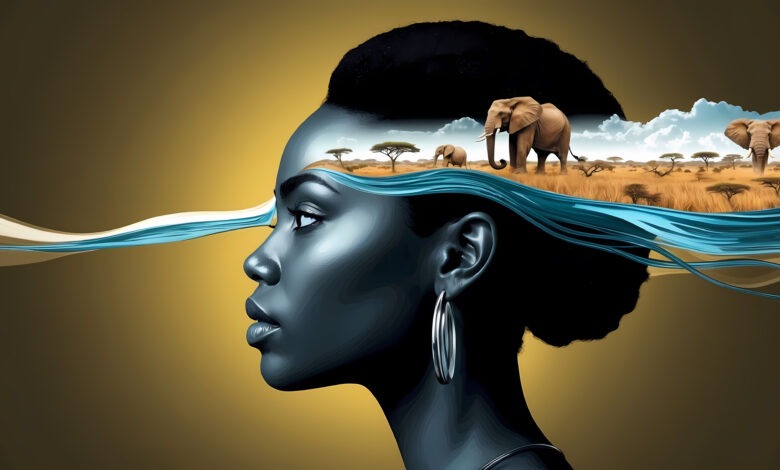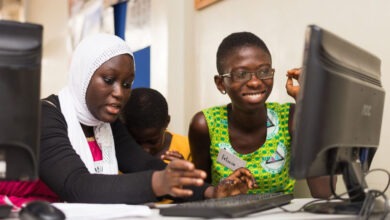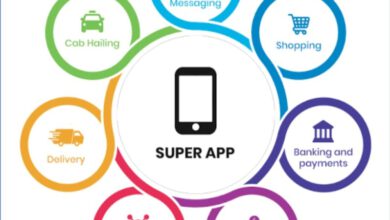Policy Advisors Perspective on AI And Ethics in Africa

INTRODUCTION
The rapid rise of artificial intelligence in Africa is sparking urgent conversations among policy advisors about ethics, governance and equitable deployment. As regional governments and international organizations begin crafting frameworks, new debates are emerging across Nigeria, Kenya, South Africa and beyond.
This piece explores how African policymakers are crafting ethical frameworks, the emerging challenges they face and their efforts to balance innovation with responsibility across continent.
Artificial Intelligence (AI) adoption in Africa has grown steadily over the past decade, driven by increased internet access, mobile penetration, and the rise of local tech ecosystems. According to a 2023 UNESCO report, over 30 African countries are developing national AI strategies, yet only a handful have concrete ethical guidelines. This growth comes amid rising global concerns about AI’s role in surveillance, misinformation, and job displacement. In Africa, where issues of inequality and limited digital infrastructure persist, the urgency to embed ethical standards into AI development is part of a broader movement to ensure inclusive, responsible tech innovation on the continent.
CURRENT DEVELOPMENTS
- Regional Leadership and Continental Strategy ~ In May 2025, the African Union convened a high level dialogue in Ethiopia with over 40 member states declaring AI a strategic continental priority, urging all African countries to draft national AI strategies based on the 2024 AU Continental AI Strategy and calling for a unified Continental AI Governance Mechanism.
Simultaneously, Smart Africa initiated the formation of an Africa AI Council bringing together governments, private sector, academia and civil society to foster cross border collaboration, knowledge exchange and aligned AI policy development.
- Morocco as Ethical AI Champion ~ Morocco has joined Current AI, a global initiative, positioning itself as a founding member focused on ethical, inclusive AI with pilot programs in healthcare, language diversity and algorithm accountability.
Concurrently, Parliament is reviewing a bill to establish a National AI Agency to regulate AI tools, enhance public awareness, and complement existing data privacy laws.
- National Level Progress ~ Tanzania completed its first AI Readiness Assessment, aligned with UNESCO ethical guidelines. The findings highlighted at the Dar es Salaam Internet Governance Forum will inform a forthcoming national AI strategy focused on ethics, inclusion and sustainable development.
African universities and think tanks are increasingly leading AI ethics efforts. For example, Africa News reports calls for AI upskilling in academia UM6P in Morocco has already integrated ChatGPT and is building policy regulatory capacity around it.
In Ghana and Rwanda, governments are establishing dedicated AI offices and adopting frameworks that prioritize privacy, bias mitigation, and human rights, Rwanda focuses on data sovereignty, Ghana emphasizes trust to attract investment.
- Grassroots Capacity Building ~ The Global Center on AI Governance’s African Observatory awarded scholarships to women leaders in policy and tech—supporting them through ethics and policy courses at the University of Cape Town.
NGOs like Code for Africa are offering fellowships for mid-career professionals in digital ethics and policy, aiming to equip them with tools to draft inclusive AI frameworks at national and civic levels.
THOSE INVOLVED INCLUDE:
- International NGOs & funders: Global Center on AI Governance, IDRC/SIDA’s AI4D Africa, Paradigm Initiative, and UNESCO are spearheading ethics training, policy research, and public engagement.
- African governments: AU Commission, national ministries in Kenya, Rwanda, South Africa, Mauritius, and Morocco are drafting and implementing AI strategies and legal frameworks.
- Scholars & technologists: Figures like Chinasa T. Okolo and Abeba Birhane provide critical guidance, warning against algorithmic colonialism and advocating for locally rooted ethics.
- Civil Society & Think Tanks: African Leadership Magazine, UNESCO-affiliated ALT Advisory, and independent researchers critiquing and guiding AI ethics frameworks .
SIGNIFICANCE
- Capacity building shift ~ Training programs are equipping local leaders to craft policies grounded in African cultural, gendered and societal contexts addressing human rights, bias and transparency.
- Continental strategy offers unity ~ The AU’s strategy creates a roadmap linking infrastructure, governance and citizen protections though implementation remains uneven.
- Legal momentum toward human rights ~ Reports highlight serious regulatory shortfalls, Mauritius leads with financial sector AI laws and other nations are now pressured to align AI governance with rights based frameworks.
- Intellectual self determination ~ Academics critique the dominance of Western AI ethics and call for frameworks like Ubuntu to be more than symbolic, urging genuine African ethical integration.
- Actionable Pathways ~ unlike strategic declaration, these initiatives include toolkits, regulatory sandboxes and operational frameworks ready for implementation.
In summary Africa is at a pivotal juncture initiatives in capacity building, continental strategy formation and legal advocacy are gaining momentum. Yet challenges such as low regional readiness, fragmented legislation and a disconnect between imported and indigenous ethics underscore that true ethical AI in Africa demands sustained local leadership, tailored legal tools and culturally rooted moral frameworks.
EXPERT INSIGHT:
The policy momentum around AI ethics in Africa has sparked both optimism and cautious reflection among stakeholders.
- This is a defining moment for Africa says Dr. Aida Opoku Mensah, a digital policy advisor and former UNECA executive. We have the opportunity to embed our values into AI governance before external systems define them for us. She emphasizes the importance of Africa developing AI on its own terms, rooted in Ubuntu and digital justice.
- Tech entrepreneur, John Kamau, founder of Nairobi based AI startup InsightGrid, lauds Kenya’s new AI strategy for the first time, we see clear policy signals that support ethical innovation while reducing risk for local startups to experiment with AI responsibly.
- Civil society leaders also raise concerns. According to Bose Ogundipe, policy lead at ALT Advisory, Ethics frameworks must include meaningful public engagement especially with marginalized communities who face the greatest risk from automated decision systems. She calls for transparency and robust accountability mechanisms in algorithmic systems.
- According to Dr. Amina Abdi, a digital policy advisor in Kenya, Africa must build AI governance rooted in our lived realities systems trained on our data, reflecting our cultures and advancing our development priorities.
- Eric Mugabe, a tech entrepreneur in Uganda, stressed the business significance. The ethical AI roadmap gives startups like mine confidence. We now know the direction, expectations and guardrails which helps attract responsible investment.
IMPLICATIONS
- Ecosystem Growth with clearer frameworks, African AI startups may attract more impact focused funding and partnerships from global tech leaders and development agencies with national strategies and ethical frameworks, African AI startups will face clearer regulatory paths, encouraging responsible innovation and boosting investor confidence.
- Digital Trust Citizens are likely to engage more confidently with AI systems especially in health, finance and education when ethical safeguards are present.
- Policy Influence African nations taking leadership roles in global AI governance discussions could shift global narratives toward inclusive and equitable tech development.
- Talent Development ~ Ethical AI policies may shape new curricula, research hubs and innovation ecosystems that prioritize responsible innovation.
- The Economy these policies can catalyze job creation, digital skilling and localized AI solutions in agriculture, healthcare and finance industries critical to Africa’s growth.
- The Communities ethical AI implementation means stronger data protection, fewer algorithmic harms, and inclusive systems that serve underrepresented groups like women, rural populations, and persons with disabilities.
However, experts warn that for these policies to succeed, African countries must avoid copy-paste models from the Global North and instead co-create frameworks with local stakeholders, civil society and marginalized communities. Ethics must not be an afterthought it must be built into the design of systems, especially in regions like Africa where data injustices are still raw.
As AI continues to embed itself in Africa’s digital future, these policy developments serve not only to protect, but to empower ensuring that technological progress aligns with African realities and aspirations.
BROADER PERSPECTIVE
The momentum around AI policy in Africa is expected to accelerate in the coming months. Nigeria is currently drafting its own National AI Strategy with public consultations scheduled for later this year.
Meanwhile, Pan African collaborations like the AU Digital Transformation Strategy and Smart Africa Alliance are working to create a harmonized ethical AI framework that promotes cross border data governance, regional innovation and digital rights protection.
New partnerships are emerging as well. The African Development Bank is exploring funding initiatives to support AI startups that align with ethical standards and UNESCO, in collaboration with GIZ, is rolling out AI ethics training programs for African policymakers and civil society leaders.
These developments align squarely with Techdom Africa’s mission to spotlight local innovation, champion sustainable development and amplify digital inclusion. By grounding AI in ethics and regional values, Africa is proving that digital transformation doesn’t have to come at the cost of its people.
We want to hear from you policymakers, innovators, youth voices and tech communities how are you preparing for Africa’s AI-powered future?





